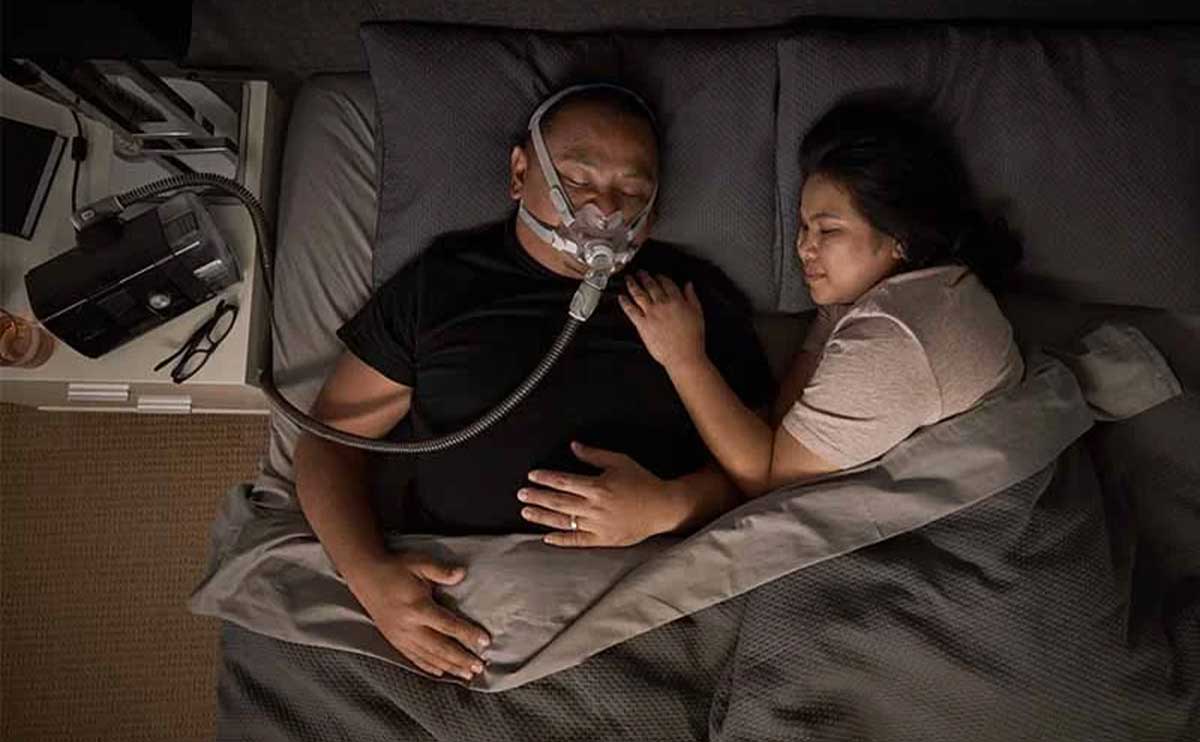Sleep apnea is a condition in which breathing stops or is interrupted for a short time during sleep. During this disorder, the individual’s breathing stops and starts repeatedly, which prevents the body from receiving enough oxygen, which can lead to serious health problems.
Sleep apnea, which manifests itself with symptoms such as snoring, stopping breathing during sleep and daytime fatigue, can cause problems such as heart diseases, high blood pressure, diabetes and stroke if left untreated.
What are the Types of Sleep Apnea?
- Obstructive Sleep Apnea (OSA)
Obstructive sleep apnea is the most common type of sleep apnea. It occurs due to obstruction in the respiratory tract and is often manifested by snoring.
- Central Sleep Apnea
Central sleep apnea occurs when the brain fails to send the correct signals to the respiratory muscles. This rarer type is often associated with heart conditions or neurological problems.
- Mixed Sleep Apnea
Mixed sleep apnea has features of both obstructive and central sleep apnea. Mixed sleep apnea occurs when both the airway is blocked and brain signals have trouble controlling breathing.
What are the Symptoms of Sleep Apnea?
Common symptoms seen in individuals with sleep apnea include:
- Loud snoring
- Waking up with a headache in the morning
- Irritability and depression
- Excessive daytime sleepiness and fatigue
- Concentration impairment and memory problems
- Waking up with a feeling of stopping breathing and suffocation during sleep
What are the Causes of Sleep Apnea?
Various factors may be effective in the development of sleep apnea:
- Overweight and Obesity: Fat accumulation around the neck can cause obstruction of the respiratory tract.
- Genetic Factors: Individuals with a family history of sleep apnea have a higher risk of developing this disease.
- Tonsil and Adenoid Enlargement: It may cause sleep apnea by causing obstruction in the upper respiratory tract, especially in children.
- Age and Gender: The incidence of sleep apnea increases in older ages and in men.
How is Sleep Apnea Diagnosed?
Various methods are used to diagnose sleep apnea. Dr. Gökçen Hatipoğlu uses the following methods for the diagnosis of sleep apnea in his office on Bağdat Street, Istanbul:
- Sleep Test – Diagnosis of Sleep Apnea with Polysomnography
This test, performed in a sleep laboratory, is used to diagnose sleep apnea and other sleep disorders by recording the patient’s brain waves, breathing rate, oxygen level, heart rate, and body movements during sleep.
- Sleep Apnea Diagnosis with Home Sleep Test
For patients who do not have the opportunity to go to a sleep laboratory, sleep apnea can be diagnosed with the help of portable devices that can be made at home.
Sleep Apnea Treatment Methods
Sleep apnea is a disease that reduces the individual’s quality of life and threatens their health. Dr. Gökçen Hatipoğlu offers solutions for sleep apnea with personalized treatment plans:
- Sleep Apnea Treatment with CPAP (Continuous Positive Airway Pressure) Device
CPAP device, which is one of the most effective treatment methods for obstructive sleep apnea, keeps the patient’s airway open during sleep and ensures uninterrupted breathing.
- Treating Sleep Apnea with Lifestyle Changes
Habits such as losing weight, quitting smoking, and regular exercise can help relieve sleep apnea. Additionally, lying on your side instead of your back keeps the airway more open.
- Sleep Apnea Treatment with Oral Appliances
In some cases, special oral appliances made by the dentist help keep the airway open by shifting the lower jaw forward.
- Sleep Apnea Treatment with Surgical Interventions
Surgical options may be considered in patients who do not respond to other treatment methods. Tonsil and adenoid surgery or soft palate surgery can open the respiratory tract.
Suggestions against Sleep Apnea
Individuals who have not been diagnosed with sleep apnea but have symptoms can have a healthier sleep by following the suggestions below:
- Make the bedroom a dark, cool and quiet environment.
- Avoid heavy meals and alcohol 3-4 hours before bed.
- Observe regular sleep hours.
- Make sure to sleep in the side position, not on your back.
Sleep apnea is a serious disorder that both reduces the individual’s quality of life and threatens their health. It is important for individuals experiencing sleep apnea symptoms to consult a neurologist who specializes in this field.
Specialist Neurologist Gökçen Hatipoğlu serves his patients with the most up-to-date approaches in the diagnosis and treatment of sleep apnea and other sleep disorders in his private neurology practice on Bağdat Street, Istanbul. Getting professional support for a healthy sleep is an important step in the management of diseases such as sleep apnea.
This article raises readers’ awareness about sleeping disorders and helps Dr. It has been prepared to introduce Gökçen Hatipoğlu’s field of expertise and to inform our patients who have sleep problems. You too; If you are experiencing problems such as insomnia, sleepiness, Sleep Apnea and Snoring, consult Sleep Doctor Specialist. Dr. You can make an appointment at Gökçen Hatipoğlu clinic.

